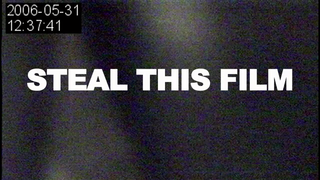Related Research Articles

Criticism of copyright, perhaps outright anti-copyright sentiment, is a dissenting view of the current state of copyright law or copyright as a concept. Critical groups often discuss philosophical, economical, or social rationales of such laws and the laws' implementations, the benefits of which they claim do not justify the policy's costs to society. They advocate for changing the current system, though different groups have different ideas of what that change should be. Some call for remission of the policies to a previous state—copyright once covered few categories of things and had shorter term limits—or they may seek to expand concepts like Fair Use that allow permissionless copying. Others seek the abolition of copyright itself.
In computer networks, download means to receive data from a remote system, typically a server such as a web server, an FTP server, an email server, or other similar system. This contrasts with uploading, where data is sent to a remote server. A download is a file offered for downloading or that has been downloaded, or the process of receiving such a file.
A screener (SCR) is an advance screening of a film or television series sent to critics, awards voters, video stores, and other film industry professionals, including producers and distributors. Director John Boorman is credited with creating the first Oscar screeners to promote his film The Emerald Forest in 1985.

"Home Taping Is Killing Music" was the slogan of a 1980s anti-copyright infringement propaganda campaign by the British Phonographic Industry (BPI), a British music industry trade group. With the rise in cassette recorder popularity, the BPI feared that the ability of private citizens to record music from the radio onto cassettes would cause a decline in record sales. The logo, consisting of a Jolly Roger formed from the silhouette of a Compact Cassette, also included the words "And It's Illegal".
Piratbyrån was a Swedish think tank established to support the free sharing of information, culture, and intellectual property. Piratbyrån provided a counterpoint to lobby groups such as the Swedish Anti-Piracy Bureau.
Downhill Battle is a non-profit organization based in Worcester, Massachusetts. It launched in August 2003 and argues that the four major recording labels have an oligopoly that is bad for both musicians and music culture.
Eyes on the Prize is an American television series and 14-part documentary about the Civil Rights Movement in the United States. The documentary originally aired on the PBS network and it also aired in the United Kingdom on BBC2. Created and executive produced by Henry Hampton at the film production company Blackside and narrated by Julian Bond, the series uses archival footage, stills and interviews by participants and opponents of the movement. The title of the series is derived from the title of the folk song "Keep Your Eyes on the Prize," which is used as the opening theme music in each episode.
Henry Eugene Hampton Jr. was an American filmmaker. He was the son of surgeon Henry Hampton Sr. and Julia Veva Hampton. Henry was raised on Laclede Station Rd. in Richmond Heights, Mo, a suburb adjacent to the western edge of the city of St. Louis. Henry lived on the eastern edge of an all black working class community. A native of Richmond Heights, Mo. Hampton would later move to Boston - to a large property at 88 Lambert Avenue in Roxbury where he founded his film production company Blackside, Inc., in 1968. It became one of the largest minority-owned non-theatrical film production companies in the U.S. during the mid-1970s and until his death in the late 1990s. Hampton and his company produced over 80 programs including documentaries, television spots, and other media productions.

The Pirate Bay is an online index of digital content of entertainment media and software. Founded in 2003 by Swedish think tank Piratbyrån, The Pirate Bay allows visitors to search, download, and contribute magnet links and torrent files, which facilitate peer-to-peer (P2P) file sharing among users of the BitTorrent protocol.

isoHunt was an online torrent files index and repository, where visitors could browse, search, download or upload torrents of various digital content of mostly entertainment nature. The website was taken down in October 2013 as a result of a legal action from the MPAA; by the end of October 2013 however, two sites with content presumably mirrored from isohunt.com were reported in media. One of them – isohunt.to – became a de facto replacement of the original site. It is not associated in any way with the old staff or owners of the site, and is to be understood as a separate continuation.

Steal This Film is a film series documenting the movement against intellectual property directed by Jamie King, produced by The League of Noble Peers and released via the BitTorrent peer-to-peer protocol.

Good Copy Bad Copy is a 2007 documentary film about copyright and culture in the context of Internet, peer-to-peer file sharing and other technological advances, directed by Andreas Johnsen, Ralf Christensen, and Henrik Moltke. It features interviews with many people with various perspectives on copyright, including copyright lawyers, producers, artists and filesharing service providers.
The use of the BitTorrent protocol for sharing of copyrighted content generated a variety of novel legal issues. While the technology and related platforms are legal in many jurisdictions, law enforcement and prosecutorial agencies are attempting to address this avenue of copyright infringement. Notably, the use of BitTorrent in connection with copyrighted material may make the issuers of the BitTorrent file, link or metadata liable as an infringing party under some copyright laws. Similarly, the use of BitTorrent to procure illegal materials could potentially create liability for end users as an accomplice.

Peter Sunde Kolmisoppi, alias brokep, is a Swedish entrepreneur and politician. Sunde is of Norwegian and Finnish ancestry. He is best known for being a co-founder and ex-spokesperson of The Pirate Bay, a BitTorrent search engine. He is an equality advocate and has expressed concerns over issues of centralization of power to the European Union in his blog. Sunde also participates in the Pirate Party of Finland and describes himself as a socialist. As of April 2017, Sunde has been working on a new venture called Njalla, a privacy oriented domain name registrar.
Pirate Cinema is a do-it-yourself cinema. Recently Pirate Cinema has been associated with groups in Brazil, Berlin, Copenhagen, Melbourne and Helsinki, where local Pirate Cinema groups are associated with the anti-copyright movement and squatting.

The Motion Picture Association (MPA) is an American trade association representing the five major film studios of the United States, as well as the video streaming service Netflix. Founded in 1922 as the Motion Picture Producers and Distributors of America (MPPDA) and known as the Motion Picture Association of America (MPAA) from 1945 until September 2019, its original goal was to ensure the viability of the American film industry. In addition, the MPAA established guidelines for film content which resulted in the creation of the Production Code in 1930. This code, also known as the Hays Code, was replaced by a voluntary film rating system in 1968, which is managed by the Classification and Rating Administration (CARA).

The Grey Album is a mashup album by Danger Mouse, released in 2004. It mixes an a cappella version of rapper Jay-Z's The Black Album with samples from The Beatles' self-titled ninth album, commonly known as "The White Album". The Grey Album gained notoriety when EMI attempted to halt its distribution despite approval of the project from Jay-Z and the two surviving Beatles, Paul McCartney and Ringo Starr.

Copyright infringement is the use of works protected by copyright law without permission for a usage where such permission is required, thereby infringing certain exclusive rights granted to the copyright holder, such as the right to reproduce, distribute, display or perform the protected work, or to make derivative works. The copyright holder is typically the work's creator, or a publisher or other business to whom copyright has been assigned. Copyright holders routinely invoke legal and technological measures to prevent and penalize copyright infringement.

Ronit Avni is a Canadian entrepreneur, tech founder, human rights advocate, and Peabody Award-winning film director and producer.

And the Walls Came Tumbling Down is a 1989 autobiography written by civil rights leader Ralph David Abernathy. The book charts his life and work with his best friend Dr. Martin Luther King Jr. in their leadership of the Civil Rights Movement to help African Americans obtain equal rights with white Americans. His book engendered much controversy due to Abernathy's allegations of King's infidelity the night before he was assassinated.
References
- ↑ Powers, Thom (January 16, 2005). "'Eyes on the Prize,' off the shelf". Boston Globe. Archived from the original on February 4, 2005.
- ↑ Nonprofit Showing 'Eyes on the Prize'
- ↑ Eyes on the Prize is most definitely NOT commonsized, Sharp-Tools.net. Retrieved 2008-02-21.
- ↑ Sharp Tools: Eyes on the Prize is most definitely NOT commonsized
- ↑ https://web.archive.org/web/20070929140529/http://www.downhillbattle.org/eyes/statement.php. Archived from the original on September 29, 2007. Retrieved June 20, 2010.Missing or empty
|title=(help) - ↑ "Bay Area Civil Rights Veterans". Downhillbattle.org. 2005-02-07. Retrieved 6 February 2013.